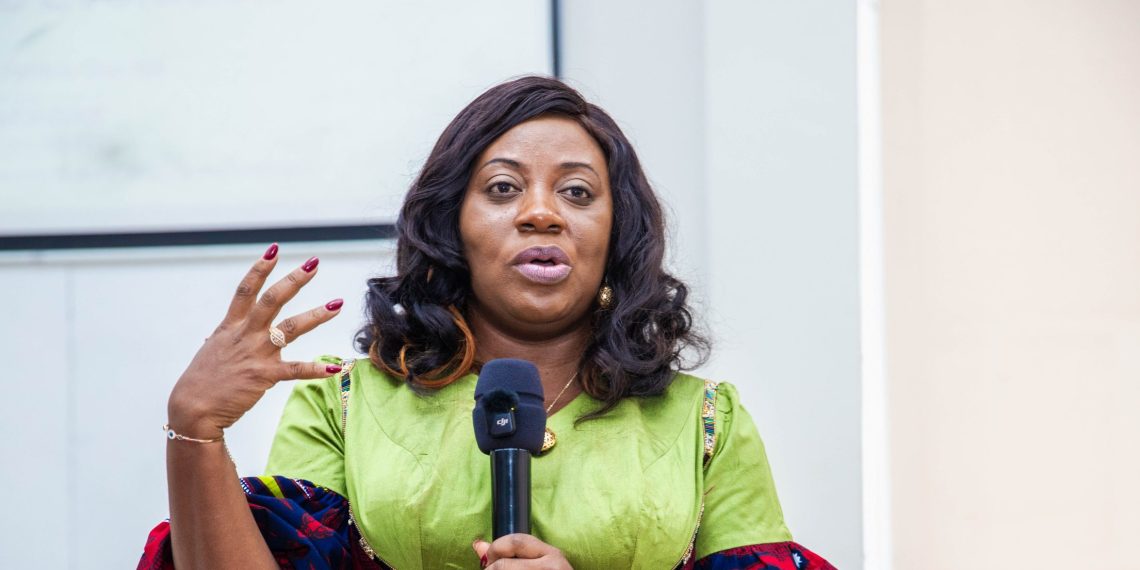adverts
The Chief Executive Officer of Telecel Ghana, Ing. Patricia Obo-Nai, has made a passionate call to Ghana’s growing community of young data scientists to move beyond theory and apply their skills to solving the country’s most critical challenges.
Delivering the keynote address at the Ghana Data Science Summit on Monday, July 7, at Ashesi University, Ing. Obo-Nai urged data science learners and professionals to focus on impact-driven innovation, stating that the value of data lies not in its volume but in how it is used for the greater good.
“There’s a saying that data is the new oil or the new gold. But if we’re honest, that description doesn’t even go far enough. Unlike oil and gold, data is not finite. Its power lies not in its volume but in how we use it,” she said.
adverts
Held under the theme “From Skills to Impact: Empowering Ghana’s Data Science Evolution”, the summit brought together hundreds of students, researchers, and industry stakeholders to explore how data science, AI, and machine learning can be harnessed for national development.
While celebrating the rise of data science across the globe, Ing. Obo-Nai acknowledged persistent barriers in Ghana, including:
- Lack of practical experience and hands-on training
- Limited access to computing infrastructure
- Low industry adoption of data-driven processes
- Bias against non-traditional or self-taught professionals
“Access to the internet alone to learn data science is not enough. Without opportunities to apply your skills, build portfolios, and gain real-world exposure, technical knowledge risks becoming an unused asset,” she warned.
Drawing from her leadership at Telecel Ghana, Ing. Obo-Nai explained how the company uses data science to drive strategy and serve customers better, from revenue forecasting and fraud detection to creating hyper-personalised offers like Made4Me.
She also highlighted Telecel’s “Data for Good” initiative in collaboration with the Ghana Statistical Service and Flowminder, which provides anonymised mobile data during national emergencies to guide health crisis responses and resource allocation.
“For us, data science is not just a department; it is a strategic asset that strengthens decision-making and customer engagement.”
Looking forward, Ing. Obo-Nai outlined a national roadmap to deepen Ghana’s data science ecosystem, calling for:
- Internships and academia–industry partnerships for practical training
- Mentorship programmes to support emerging talent
- Recognition for self-taught professionals from non-traditional pathways
- Broader job opportunities in sectors beyond STEM and finance
- Open-access data platforms and standard data-sharing agreements
- Advanced research centres to sustain innovation and global competitiveness
At the core of her message was a challenge to young data scientists: focus not just on coding but on solving real problems.
“It’s not enough to code. You must ask the right questions, understand your data deeply, and communicate your findings so that they drive decisions that change lives,” she said.
“Your skills can help a farmer predict rainfall, detect health risks before they spread, or build the next fintech solution. The future won’t be handed to us. We must build it—and shape a data-driven Ghana we can all be proud of.”
Also known as IndabaX Ghana, the Ghana Data Science Summit is an annual event launched in 2019 by the Data Science Network, in partnership with Deep Learning Indaba. It aims to democratise access to data science knowledge and tools, promoting inclusion across academia, government, industry, and the wider community.
Click the link Puretvonline.com | WhatsApp Channel to join the WhatsApp channel
GOT A STORY?
Contact/WhatsApp: +233243201960 or Email: manuelnkansah33@gmail.com


